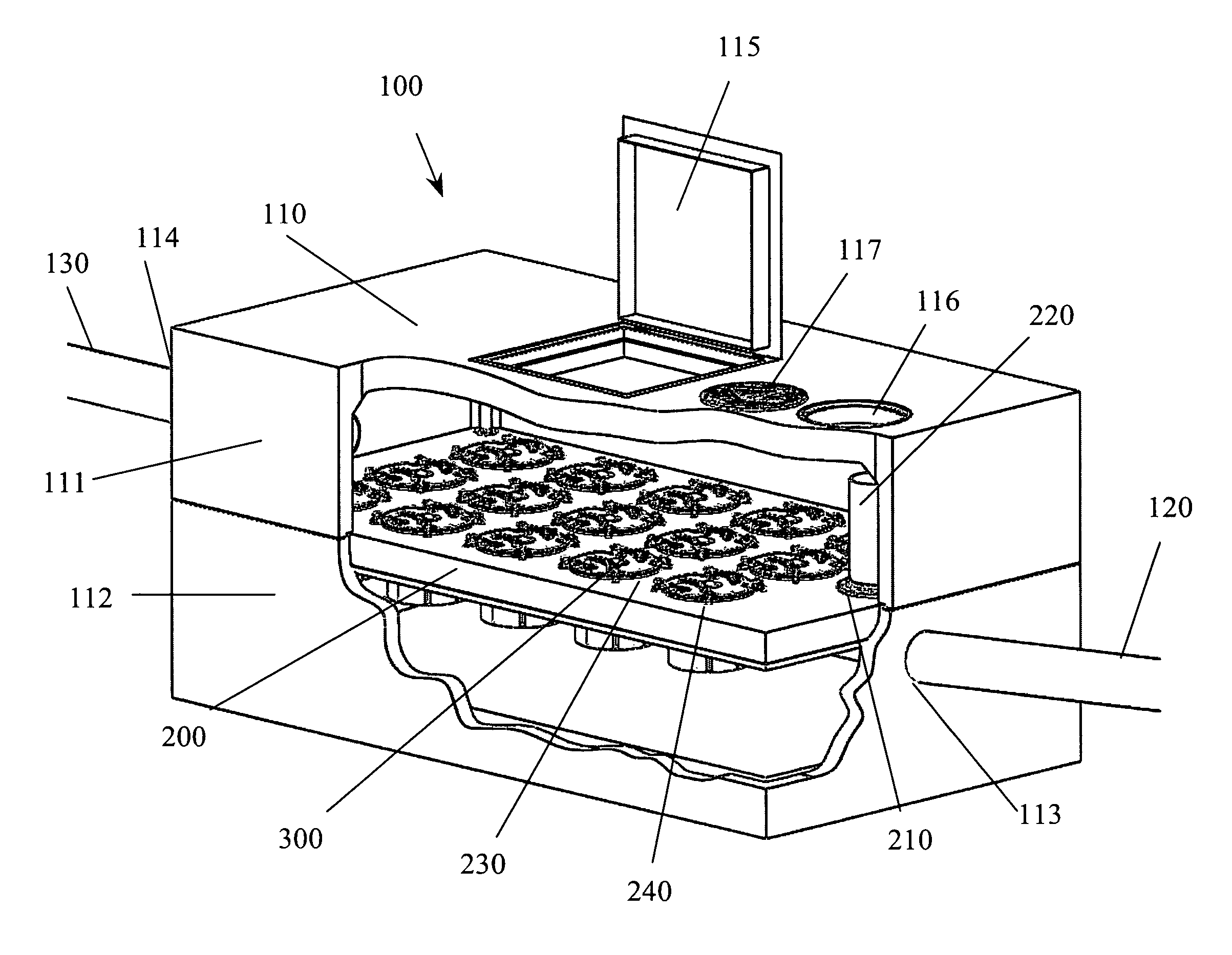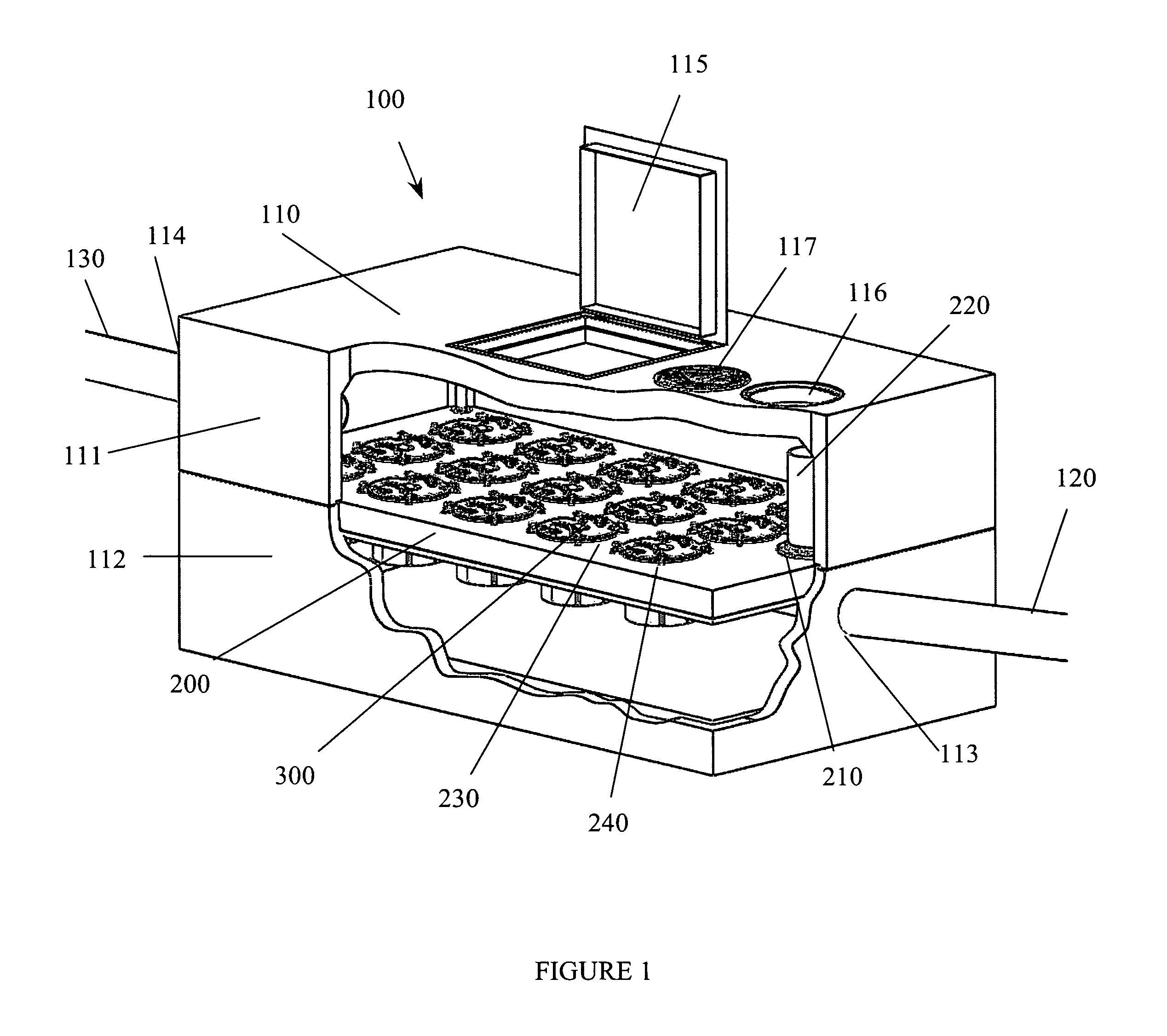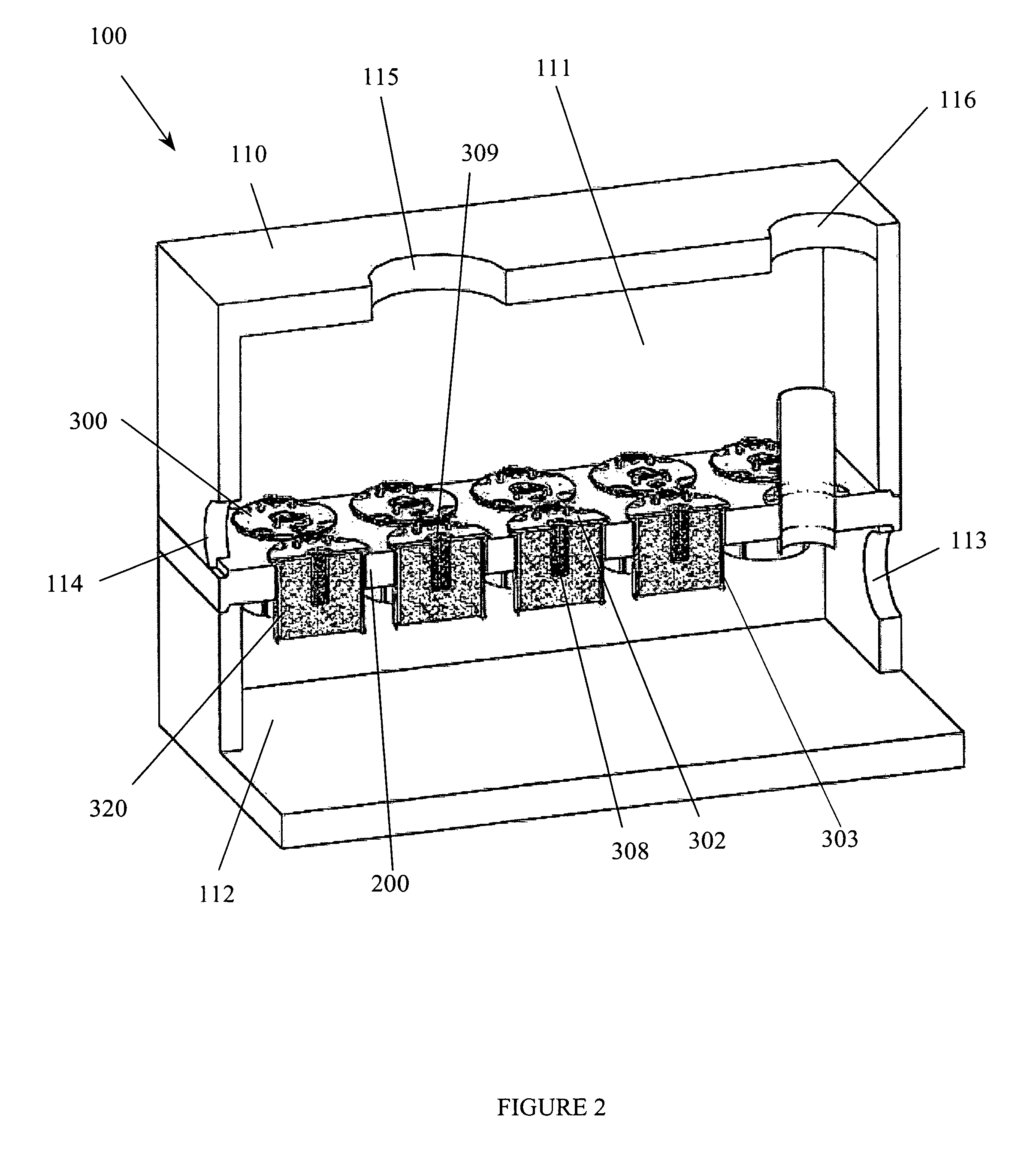Fluid filter system and related method
a filter system and flue gas technology, applied in the field of systems, can solve the problems of increased strain on existing water transfer and treatment infrastructure, increased likelihood of natural water contamination, and increased pollution, and achieve the effects of maximizing contaminant retention, reducing the probability of natural water contamination, and reducing the number of contaminated areas
- Summary
- Abstract
- Description
- Claims
- Application Information
AI Technical Summary
Benefits of technology
Problems solved by technology
Method used
Image
Examples
Embodiment Construction
[0036]A separation system 100 of the present invention is illustrated in the accompanying drawings. As shown in FIGS. 1-3, the system 100 includes a tank 110 having an outflow chamber 111 and a containment chamber 112 spaced below the outflow chamber 111 by a confinement deck 200. The containment chamber 112 includes a tank inlet port 113 through which a fluid to be treated enters the containment chamber 112 from an inlet conduit 120. The outflow chamber 111 includes a tank outlet port 114 through which a treated fluid exits the outflow chamber 111 via an outlet conduit 130. The tank 110 also preferably includes an access hatch 115 for accessing the interior of the tank 110 at the outflow chamber 111, and a manhole 116 with cover 117. While the preferred embodiment of the present invention describes the separation system 100 with a specific outflow chamber 111 above the confinement deck 200, it is to be understood that in an alternative embodiment, the fluid may pass from the contai...
PUM
| Property | Measurement | Unit |
|---|---|---|
| height | aaaaa | aaaaa |
| flow rate | aaaaa | aaaaa |
| flow rates | aaaaa | aaaaa |
Abstract
Description
Claims
Application Information
 Login to View More
Login to View More - R&D
- Intellectual Property
- Life Sciences
- Materials
- Tech Scout
- Unparalleled Data Quality
- Higher Quality Content
- 60% Fewer Hallucinations
Browse by: Latest US Patents, China's latest patents, Technical Efficacy Thesaurus, Application Domain, Technology Topic, Popular Technical Reports.
© 2025 PatSnap. All rights reserved.Legal|Privacy policy|Modern Slavery Act Transparency Statement|Sitemap|About US| Contact US: help@patsnap.com



